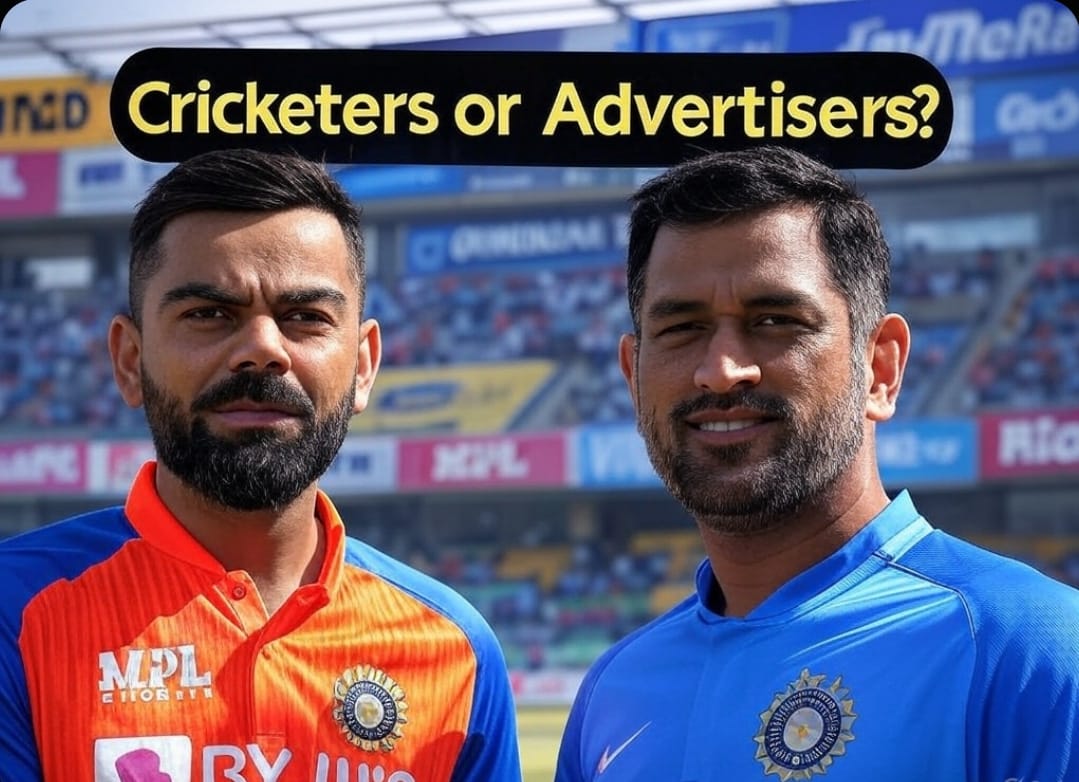Moral empathy is a kind of empathy that can induce moral action, with the mutual understanding and association between individuals forming the basis for its development. Let us consider the moral empathy of cricketers in India who endorse betting apps. Cricket is not just a sport in India; it is a passion, a religion, and an inherent part of the culture.
Cricketers are respected as role models in the country, who shape the aspirations and behaviour of youngsters. However, when such sporting icons endorse betting apps, they bring the ethical and moral implications of their influence into question. The argument over their moral empathy when they promote such apps brings up the issues of responsibility, ethics, and the effect on young and vulnerable minds.
At the time of the dismissal of Deepak Hooda for three runs against Sri Lanka during the Asia Cup match, the over-the-top arm of the broadcaster in India displayed the advertisement of a betting company, 1xBet. It became visible as a pop-up at the bottom of the monitor with the display of the term ‘professional sportsblog’ under the logo.
To the extreme right of the pop-up advertisement was Yuvraj Singh, who continues to sponsor 1xBet’s professional sports blog on Twitter. This is one of the instances of 1xBet getting exposure on the OTT platform and an instance of a betting app trying to circumvent rules to get endorsed as a sports blog.
The Power of Influence
Those cricketers who are playing at national and international levels exert vast influence particularly on young minds. Their connection with brands extensively influences consumer behaviour. When such people endorse betting apps, they are not only promoting a product but also helping gambling. Because of the huge trust people place in them, their promotion can make betting appear socially acceptable, and even desirable. The opinion of fans is that if a respected cricketer promotes an app, then it must be safe.
However, the very nature of betting leads to ethical apprehensions. Gambling in whatever form is addictive, which can cause financial disaster, and emotional hardship. Youngsters, with their hero worship of such sports personalities, may develop an interest in betting just because their favourite cricketer approved it. The question that comes up is whether cricketers should capitalize on their fame with no moral empathy to promote an industry that has potential risks especially for the younger generation.
Cricketers and Ethical Responsibility
A fundamental characteristic of moral empathy is to understand the effect of one’s actions on others. Arguably, cricketers have the justification to arrive at personal financial decisions; however, they also carry a moral responsibility toward their young fans.
Unlike popular figures from other entertainment sectors, cricketers embody values such as sportsmanship, discipline, and hard work. When they resort to promoting betting apps, they undermine such values, unconsciously encouraging behaviour that can have negative consequences.
Cricketers, particularly those who were a part of fixing scandals or noticed their colleagues fall into the deceptive trap of gambling-related disputes, should be more careful about the consequences of their actions. Match-fixing and corruption, often connected to betting groups, affected cricket in the past. By promoting betting apps, cricketers risk normalizing an activity that corrupted the integrity of the sport considerably.
The Legal and Social Perspective
In many countries, betting on sports is either hugely regulated or completely illegal. India, however, has a complicated legal framework related to gambling, where online betting happens in a grey area. While certain forms of online betting are legalized in some states, the risks of addiction and financial fraud remain concerns. In spite of repeated warnings by governments about the dangers of betting, the presence of cricket players in the advertisements makes betting appear safe.
The social effects of endorsing betting apps need to be examined. People, especially from lower economic backgrounds, consider cricket as a way to escape poverty. When their favourite players promote betting, they might consider it an easy way to make money and become addicted to gambling. Their favorite cricket stars may unintentionally be leading them toward financial ruin.
Comparison with Other Endorsements
The endorsement of betting apps can be compared to other controversial promotions such as alcohol and tobacco products. Earlier, famous personalities endorsing tobacco products faced extreme backlash, leading to a stringent ban on such advertisements.
Similarly, many sports associations have turned away from approving alcohol brands to maintain a responsible image. Betting is similar to them, has harmful potential, and therefore, must be treated similarly and subject to the same extent of scrutiny.
A Call for Ethical Endorsements
Cricketers need to realize their impact and take a more ethical stand on promotions. Instead, they can support industries that align with positive values—sports equipment, educational initiatives, fitness brands, and youth welfare programs. Choosing such endorsements over betting apps would safeguard their image and protect their fans from making risky choices.
Sports authorities and advertising regulatory bodies should also initiate steps to establish stricter guidelines on the promotion of betting apps. Cricketers who care about their young fans should consider the long-term effects of their influence rather than their own short-term financial gains.
Conclusion
The moral empathy of cricketers endorsing betting apps is a critical issue that cannot be overlooked. As role models, they must be watchful of the messages they send to their audience. Endorsing betting apps may appear like a benign financial decision, but the consequences are quite scary. Cricketers should exemplify the values of truthfulness and responsibility, ensuring that their approvals are in tune with the spirit of the sport. In this endeavor, they should safeguard their legacy and uphold the faith and admiration of millions of youngsters who look up to them.
About Author

Ananda Murthy JS is an English teacher in Hyderabad. His teaching experience spans more than 30 years, which includes his stint as an IGCSE teacher in the Maldives, lecturer in English for Intermediate students, writer and editor/language specialist, and IELTS, GRE and TOEFL trainer. He also provides English coaching to students appearing for CAT, IELTS, GRE and TOEFL privately in Hyderabad. Ananda has proficiency in editing SWOT analyses, market forecast and other reports, conducting Effective English sessions, and imparting training in Business English. He also write business blogs, key word dense articles and original articles on various topics.

